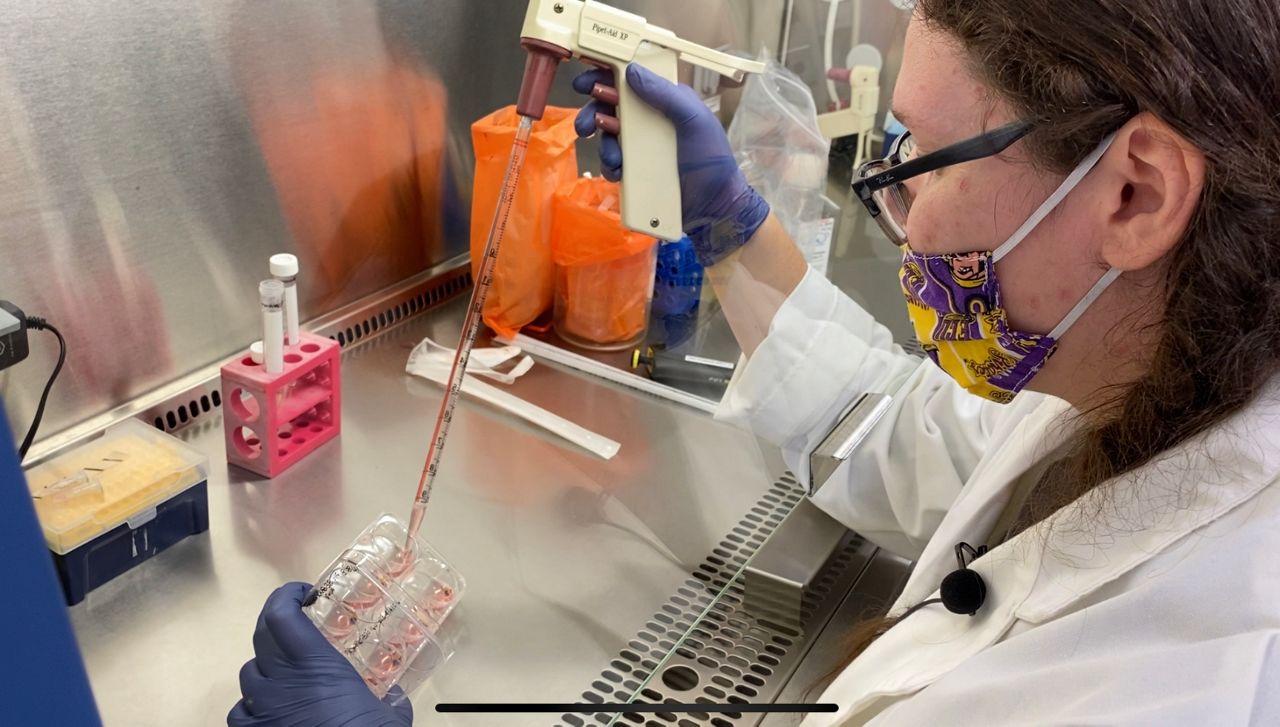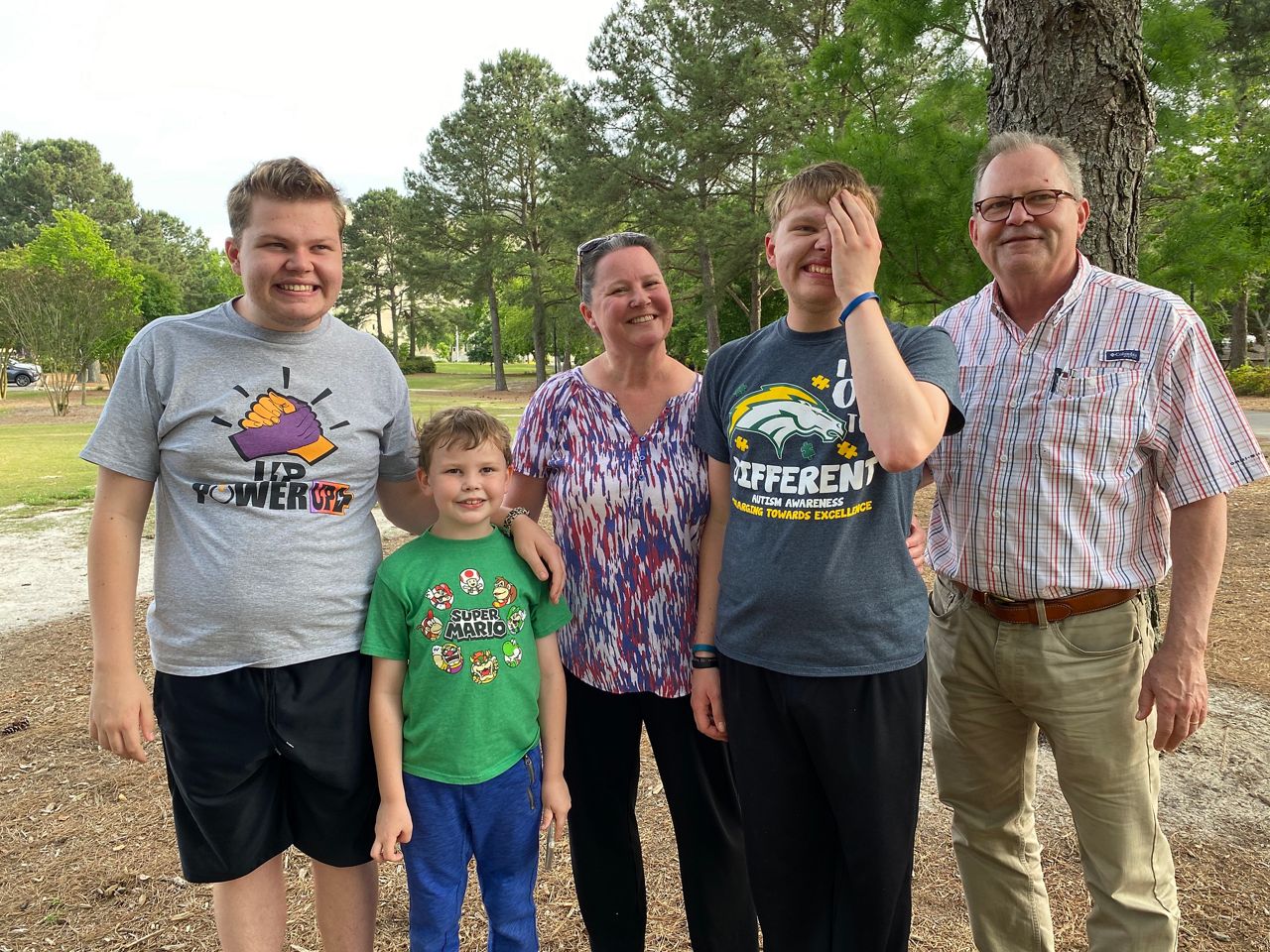GREENVILLE, N.C. — At East Carolina University, a team of researchers is growing miniature brains in order to learn more about brain development.
The research focuses on testing mini-brains under different conditions to see if they form neurodevelopmental disorders, specifically autism.
Most of the cells are taken from human skin cells. Then, under the right conditions and with the right recipe, they are able to turn them into mini-brains.

But what are these scientists actually looking for?
Karen Litwa is an assistant professor of anatomy and cell biology at ECU, and she's the brain behind this operation.
“I think we get to use the most amazing technology in the lab,” Litwa said.
The team's primary focus is on how the connections between the brain cells form. These connections are called synapses.
“Our brains use these synapses to fine-tune themselves to the world,” Liwa said. “And so, just even a little bit of an imbalance has such dramatic outcomes, and the fact that we can still create that in a dish is mind-boggling to me.”
They've noticed that when certain types of synapses are sending too many signals to each other, an imbalance between brain cells occurs. That can often lead to developmental disorders, such as autism.

Ken Soderstrom, an associate professor of pharmacology, is another member of the research team. He and his family have seen the impacts of autism first hand.
Ken and Amy Soderstrom are parents to three boys, but their parenting journey has not been easy. Their 20-year-old twin boys, Samuel and Isaac were, diagnosed with autism before they turned 3.
“They will know exactly what they want, but they can't tell you about it,” Ken Soderstrom said. “And so this is frustrating for them.”
Although Samuel and Isaac are identical, the severity of their autism is different.
While Isaac is verbal to a certain extent, Samual just doesn't talk.
Ken Soderstrom said that means that something early in their environment must have triggered the disorder.
The Soderstrom's personal experience with autism is part of the reason Ken Soderstrom is so invested in his mini-brain research. He's had to balance his role as a father, bringing up two autistic boys, with his role as a scientist in using their behaviors as a way to further his research.

“In this, a detached sense, I've seen my boys as kind of an experiment,” Ken Soderstrom said. “To most people, it's not interesting, it's terrifying. And I suppose it was terrifying to me also, but it was also interesting. Maybe that's a good thing. Maybe I benefitted from that.”
While most research of this kind focuses on adult brains, this team at ECU is focusing their research on fetal brains that are still developing in the womb. They hope their research can benefit people who have personally seen the impacts of autism.



